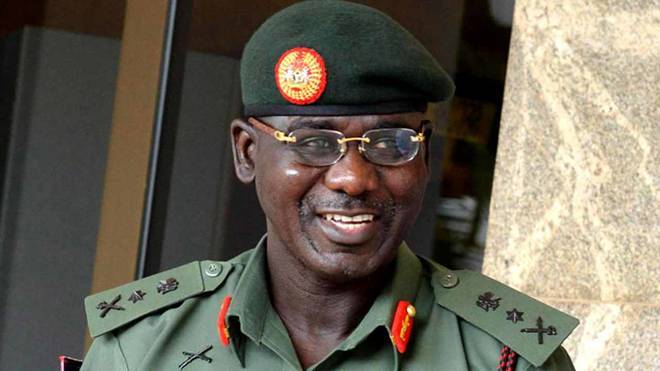Secure environment critical for nurturing, sustaining democracy, says Buratai
The Chief of Army Staff (COAS), Lt.-Gen. Tukur Buratai, on Monday said that a secured environment was critical to nurturing democracy in any society. Buratai stated this in Okada, near Benin, Edo, while delivering the maiden inaugural lecture of the Centre for Contemporary Security Affairs, Igbinedion University. The topic of the lecture is: ‘‘Military and […]

The Chief of Army Staff (COAS), Lt.-Gen. Tukur Buratai, on Monday said that a secured environment was critical to nurturing democracy in any society.
Buratai stated this in Okada, near Benin, Edo, while delivering the maiden inaugural lecture of the Centre for Contemporary Security Affairs, Igbinedion University.
The topic of the lecture is: ‘‘Military and Democratic Consolidation in Nigeria: Appraisal of Nigeria Army Counter-Terrorism and Counter Insurgency Operations.’’
The COAS said that the military was a key factor in the security spheres and shared responsibility for securing the environment that would allow for consolidation of democracy.
He pointed out that as a leading service within the military, the Nigeria Army had achieved considerable successes in curbing internal and external security threats towards protecting the nation’s territorial integrity.
He explained that this was achieved through the counter-terrorism and counter-insurgency operations.
Saying that there would be no democracy without national security, the army chief declared that the military stood in the forefront of ensuring protection of lives and properties.
He said that the army had put in place series of strategies to counter terrorism and insurgency.
According to him, such strategies have yielded positive results as the army in 2018, rescued no fewer than 28,000 abductees, while the search for the Chibok girls was ongoing.
Buratai listed the challenges of counter-terrorism and counter-insurgency operations to include porous border connecting the country with Cameroon, Chad and Niger.
Others, he said, were cross-border nature of the crisis, remote nature of communities, insufficient international support as well as threats to mines and improvised devices.
He said that the army had done well in counter-terrorism and insurgency operations, “leading to restoration of normalcy in governance, review of force structure, capacity-building for personnel, increase in troops’ strength and improvement in troops’ welfare’’. (NAN)
